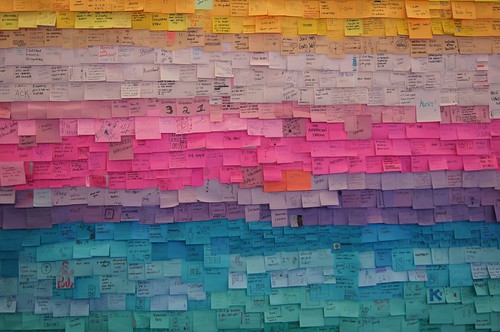The words in the title of the post come from Lyle Berkowitz, MD ( @drlyle1 ), who has been gently coaching me through the events of the first 2011 in-person meeting of the Innovation Learning Network, in Seattle, Washington.
The theme of the meeting is “gamification of health care,” and it’s hosted by FrogDesign (@frogdesign) (see cool photos of their studio below).
[miniflickr photoset_id=”72157626521414401″]Photos of/from Innovation Learning Network 2011[/miniflickr]
What I appreciate about things so far is that they are acknowledging that a portion of the audience is skeptical up front. Maybe I’m one of those people, maybe I’m not. I think, though, that my Australian friend Carolyn DerVartanian( @carolyndv ), shares the perspective of many people:
So this post is dedicated to her.
What I’ve learned so far is:
- To think more broadly than “mobile app” when thinking about a game. I think a lot of people without health care experience choose this incarnation of a game and it may create the skepticism that Carolyn refers to.
- Looking at examples of game mechanics, for a more theoretical basis in how games might work to help solve problems – yesterday we thought of specific gaming mechanics to address a health need of a certain population (we chose college students, and making nutritional choices)
Also, in a helpful conversation with @drlyle1, he reminds and reinforces my belief that games can be deployed to change the microenvironment, however their effectiveness will be limited if the macroenvironment rules are not changed. For this reason, I am more drawn to a societal-level game than I would be to an individual-level game. After all, if there is no healthy food available in a decent radius (see my posts about the dichotomies present in Washington, DC), does it matter if an app educates people about tracking their choices?
Lyle’s comment in the title is also a very compelling reason to explore this more, which I intend to do…really interested in the behavior of organizations and society to make the ongoing behavior choices easier. Never a dull time at @healthcareILN!
